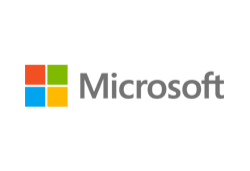Construction is one of the most targeted industries for cyberattacks, with a 20% increase in cyber incidents in recent years.
Construction projects involve numerous stakeholders, including contractors, ubcontractors, suppliers, and consultants. This complex supply chain increases the risk of introducing vulnerabilities and makes it challenging to ensure consistent cybersecurity practices throughout the project lifecycle.
Construction projects often involve a dynamic workforce with frequent changes in personnel, including contractors and temporary workers. This high turnover makes it difficult to maintain consistent cybersecurity awareness and training across all individuals involved.
Construction companies typically prioritize on-site operations and project management, leaving IT infrastructure and cybersecurity as secondary concerns. As a result, investments in cybersecurity measures may be limited, making them more susceptible to attacks.
Construction projects rely on a variety of software systems, including project management tools, Building Information Modeling (BIM) software, and Internet of Things (IoT) devices. These disparate systems may have different security protocols, making it challenging to maintain a cohesive cybersecurity strategy.
Construction projects involve numerous stakeholders, including contractors, ubcontractors, suppliers, and consultants. This complex supply chain increases the risk of introducing vulnerabilities and makes it challenging to ensure consistent cybersecurity practices throughout the project lifecycle.
Construction companies typically prioritize on-site operations and project management, leaving IT infrastructure and cybersecurity as secondary concerns. As a result, investments in cybersecurity measures may be limited, making them more susceptible to attacks.
Construction projects often involve a dynamic workforce with frequent changes in personnel, including contractors and temporary workers. This high turnover makes it difficult to maintain consistent cybersecurity awareness and training across all individuals involved.
Construction projects rely on a variety of software systems, including project management tools, Building Information Modeling (BIM) software, and Internet of Things (IoT) devices. These disparate systems may have different security protocols, making it challenging to maintain a cohesive cybersecurity strategy.
Construction sites are often physically secured with fences, surveillance cameras, and access controls. However, the focus on physical security sometimes overshadows cybersecurity measures, leaving digital assets and systems vulnerable to cyberattacks.
The construction industry often utilizes older technology and equipment, which may lack built-in security features or receive limited software updates. These legacy systems can be easier targets for cybercriminals seeking to exploit vulnerabilities.
Construction projects operate on tight schedules, and any disruption due to cyber incidents can lead to costly delays. This urgency to meet deadlines can inadvertently lead to the neglect of robust cybersecurity practices.
Cybersecurity awareness and training programs are often overlooked in the construction industry. Many workers may not be familiar with common cyber threats, making them more susceptible to phishing attacks, social engineering, or inadvertent data breaches.
Construction sites are often physically secured with fences, surveillance cameras, and access controls. However, the focus on physical security sometimes overshadows cybersecurity measures, leaving digital assets and systems vulnerable to cyberattacks.
Construction projects operate on tight schedules, and any disruption due to cyber incidents can lead to costly delays. This urgency to meet deadlines can inadvertently lead to the neglect of robust cybersecurity practices.
The construction industry often utilizes older technology and equipment, which may lack built-in security features or receive limited software updates. These legacy systems can be easier targets for cybercriminals seeking to exploit vulnerabilities.
Cybersecurity awareness and training programs are often overlooked in the construction industry. Many workers may not be familiar with common cyber threats, making them more susceptible to phishing attacks, social engineering, or inadvertent data breaches.







Continuous monitoring and threat intelligence services. Security Operations Center (SOC) capabilities with experienced analysts who can proactively identify and mitigate emerging threats.

Robust network security measures, including firewalls, intrusion detection systems (IDS), and intrusion prevention systems (IPS). Network segmentation isolates critical systems to prevent lateral movement of attackers.

We implement strong identity and access management (IAM) practices, such as multi-factor authentication (MFA) and privileged access management (PAM). This helps ensure that only authorized personnel can access critical systems and data.

We ensure data encryption both at rest and in transit to protect sensitive patient information. This includes implementing encryption protocols for databases, backups, emails, and file transfers.

Deploy advanced endpoint protection solutions, such as antivirus software, anti-malware, and endpoint detection and response (EDR) tools. Detect and block malicious activities on individual devices within your organization's network.






Detect, respond, and recover with an established incident response plan. Timely reporting, containment, investigation, and remediation. Identify the root cause of breaches and support legal proceedings if necessary.

Cybersecurity awareness training programs to educate staff about common threats, phishing attacks, and data protection. Create a security-conscious culture within your organization and reduce human error leading to breaches.

Ensure that your cybersecurity company is well-versed in Non-profit industry regulations like State Data Breach Notification Laws, PCI DSS, HIPPA, CCPA, GDPR and applicable data privacy laws. Achieve and maintain compliance through regular assessments.

Conduct thorough risk assessments to identify vulnerabilities and potential threats specific to the non-profit environment. Regular vulnerability scans and penetration testing will be performed to proactively detect and address security weaknesses.

Software & security patches and updates to address vulnerabilities and stay ahead of evolving threats. Ongoing support, incident response guidance, security consultations, and proactive improvements on your organization's security posture.




These clients found their flow with NUMA Networks IT Solutions
Warren and the Team at Numa, are committed to making IT better for clients. This industry can be difficult to navigate, Numa always keeps a lookout on what is changing in tech and keeps clients on top of it. Great job Guys!
Althogh we’ve only been with Numa for about a year, our experience has been overwhelmingly positive. The technicians have been very knowledgeable, able to offer practical solutions, and have resolved our issues in a timely manner. Thanks for all you’ve done to help us work though our tech issues, Numa!
We reached to Numa for some corp IT help as growing company. The team (Warren and folks) came in to provide very flexible pricing and model for us to engage. They worked with us on helping re-do our entire wireless network for a growing company, fixing older problems. Pleasant to work with them and love that they are small, nimble and very attentive. Not your typical IT outsource company. Highly recommen these guys.
Cybersecurity is a top concern for businesses these days. Understanding where you stand and how vulnerable you are is a critical first step in securing your business
| Cookie | Duration | Description |
|---|---|---|
| cookielawinfo-checkbox-analytics | 11 months | This cookie is set by GDPR Cookie Consent plugin. The cookie is used to store the user consent for the cookies in the category "Analytics". |
| cookielawinfo-checkbox-functional | 11 months | The cookie is set by GDPR cookie consent to record the user consent for the cookies in the category "Functional". |
| cookielawinfo-checkbox-necessary | 11 months | This cookie is set by GDPR Cookie Consent plugin. The cookies is used to store the user consent for the cookies in the category "Necessary". |
| cookielawinfo-checkbox-others | 11 months | This cookie is set by GDPR Cookie Consent plugin. The cookie is used to store the user consent for the cookies in the category "Other. |
| cookielawinfo-checkbox-performance | 11 months | This cookie is set by GDPR Cookie Consent plugin. The cookie is used to store the user consent for the cookies in the category "Performance". |
| viewed_cookie_policy | 11 months | The cookie is set by the GDPR Cookie Consent plugin and is used to store whether or not user has consented to the use of cookies. It does not store any personal data. |